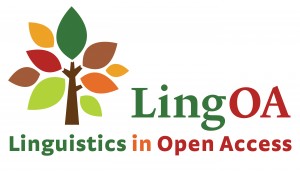To-write-between-worlds: Tricks, ruses and pleasures of the literatures of no fxed abode (starting with José F. A. Oliver)
DOI:
https://doi.org/10.32870/vel.vi9.83Keywords:
Literatures of no fxed abode, José F. A. Oliver, migration, deterritorialization.Abstract
By examining the essay work of José F. Oliver, a German poet of Spanish descent, the author in this paper discusses the reciprocity and complementarity that exists between different languages such as Spanish and German, and also with regards to Andalusian and Germanic dialects, as well as the tension between the oral (logosphere) and spoken (grafosphere) dimensions of language. The translingual speaker is immersed into a network of meanings that shape and enrich his/her symbolic repertoire and his/her relationship with the world. The author highlights the relationship between the literatures, migration, deterritorialization and tentative policies that accept or repress linguistic otherness. The traditional conception of a hierarchical and centralist world literature is questioned and a pluricentric and rhizomatic exploration with decentralized trajectories of the different literatures is proposed.
Downloads
Metrics
References
Bachmann-Medick, D. (2006). Spatial turn: Cultural turns. Neuorientierungen in den Kulturwissenschaften (pp. 284-328). Reinbek, Alemania: Rowohlt.
Bachmann-Medick, D., Fort-Schritte, Gedanken-Gänge, Ab-Stürze. (2009). Bewegungshorizonte und Subjektverortung in literarischen Beispielen. En W. Hallet y B. Neumann (Eds.), Raum und Bewegung in der Literatur. Die Literaturwissenschaften und der Spatial turn (pp. 257-280). Bielefeld, Alemania: Transcript.
Bachtin, M. (1979). Die Ästhetik des Wortes (Editado y con un prefacio de R. Grübel; traducción por R. Grübel y S. Reese). Fráncfort, Alemania: Suhrkamp.
Bade, K. (2000). Europa in Bewegung. Migration vom späten 18. Jahrhundert bis zur Gegenwart. Múnich, Alemania: Verlag C. H. Beck.
Casanova, P. (1999). La république mondiale des lettres. París, Francia: Seuil.
Damrosh, D. (2003). What is world literature? Princeton/Oxford: Princeton University Press.
Descombes, V. (1981). Das Selbe und das Andere. Fünfundvierzig Jahre Philosophie in Frankreich: 1933-1978. Fráncfort, Alemania: Suhrkamp.
Ette, O. (2001). Europa als Bewegung. Zur literarischen Konstruktion eines Faszinosum. En D. Holtmann y P. Riemer (Eds.), Europa: Einheit und Vielfalt. Eine interdisziplinäre Betrachtung (pp. 15-44). Münster/Hamburgo/Berlín/Londres: lit Verlag.
Ette, O. (2004). ÜberLebenswissen. Die Aufgabe der Philologie (pp. 245-250). Berlín, Alemania: Kulturverlag Kadmos.
Ette, O. (2005). ZwischenWeltenSchreiben. Literaturen ohne festen Wohnsitz (ÜberLebenswissen ii). Berlín, Alemania: Kulturverlag Kadmos.
Ette, O. (2010). ZusammenLebensWissen. List, Last und Lust literarischer Konvivenz im globalen Maßstab (ÜberLebenswissen iii). Berlín, Alemania: Kulturverlag Kadmos.
Ette, O. (2012a). Konvivenz. Literatur und Leben nach dem Paradies. Berlín, Alemania: Kulturverlag Kadmos.
Ette, O. (2012b). TransArea. Eine literarische Globalisierungsgeschichte. Berlín/Boston: Walter de Gruyter. núm. 9 / enero-julio / 2017 29
Ette, O. (2013). Roland Barthes. Landschaften der Theorie. Constanza, Alemania: Konstanz University Press.
Ette, O. (2014). Anton Wilhelm Amo: Philosophieren ohne festen Wohnsitz. Eine Philosophie der Aufklärung zwischen Europa und Afrika (pp. 91-109). Berlín, Alemania: Kulturverlag Kadmos.
Ette, O. (2015a). Beschleunigung. Kann die Globalisierung ein Ende nehmen? En J. Kaube y J. Laakmann (Eds.), Das Lexikon der ofenen Fragen (pp. 32-33). Stuttgart, Alemania: Verlag J. B. Metzler.
Ette, O. (2015b). Desde la flología de la literatura mundial hacia una polilógica flología de las literaturas del mundo. En G. Müller y D. Gras Miravet (Eds.), América Latina y la literatura mundial. Mercado editorial, redes globales y la invención de un continente (pp. 323-367). Madrid, España/Fráncfort, Alemania: Iberoamericana-Vervuert.
Ferguson, N. (2011). Civilization. The West and the rest. Nueva York, Estados Unidos: Penguin Books.
García Lorca, F. (2015). Sorpresa, Unverhoft. Ausgewählte Gedichte 1918-1921. Einschreibungen und Irritationen von José F. A. Oliver. Berlín/Budapest/Viena: Hochroth Verlag.
Huntington, S. P. (1996). The clash of civilizations. Nueva York, Estados Unidos: Simon & Schuster.
Jakobson, R. (1971). On linguistic aspects of translation. Selected writings. ii. Word and language (p. 260). La Haya, Países Bajos/ París, Francia: Mouton.
Kristeva, J. (1988). Etrangers à nous-mêmes. París, Francia: Librairie Artheme Fayard.
Literaturen (2005, abril). Número 4, p. 26. Berlín, Alemania.
Maalouf, A. (2009). Le dérèglement du monde. Quand nos civilisations s’épuisent (p. 11). París, Francia: Grasset.
Maalouf, A. (1983). Les croisades vues par les Arabes. París, Francia: Jean-Claude Lattès.
Oliver, José F. A. (1997). Duende. Meine Ballade in drei Versionen. Die Ballade vom Duende. La balada del Duende. S Duendelied. Gutach, Alemania: Drey-Verlag.
Oliver, José F. A. (2015). Fremdenzimmer. Ensayos. Fráncfort, Alemania: Weissbooks.
Ortiz, F. (1978). Contrapunteo cubano del tabaco y el azúcar (Prólogo y cronología J. Le Reverend). Caracas, Venezuela: Biblioteca Ayacucho.
Schlögel, K. (2003). Im Raume lessen wir die Zeit. Über Zivilisationsgeschichte und Geopolitik. Múnich/Viena: Carl Hanser Verlag.
Soja, E. (1989). Postmodern geographies. The reassertion of space in Critical Social Theory.
Londres, Inglaterra: Verso
Todorov, T. (1985). Die Eroberung Amerikas. Das Problem des Anderen. Fráncfort, Alemania: Suhrkamp.
Trojanov, I. (2015). Ilija Trojanow en conversación con José F. A. Oliver. Heimat. Frühe Gedichte (Escogido y editado por I. Trojanow, p. 100). Berlín/Tubinga: Verlag Hans Schiler.













